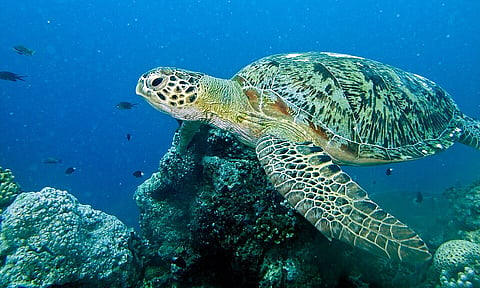

The green turtle — once hunted for its meat, eggs and ornate shell — has made a remarkable recovery after decades of decline, in what experts hail as a rare conservation triumph.
According to BBC News, the species, long listed as Endangered since the 1980s, has now been reclassified as Least Concern on the IUCN (International Union for Conservation of Nature) Red List.
This milestone follows years of international efforts including beach patrols, nest protection, hatchling releases and measures to curb accidental entanglement in fishing nets.
Dr Nicolas Pilcher, founder of the Marine Research Foundation in Sabah, Malaysia, called the development “a catalyst to achieve numerous other wins”, stressing that the lessons learned must guide future action.
Green turtles, noted BBC News, are among the largest sea turtles and derive their name from the greenish hue of their body fat, a result of their herbivorous diet.
While populations across many regions are now rising, scientists caution that the species remains far below its historic numbers due to persistent threats such as habitat loss, illegal hunting, and climate change.
Prof Brendan Godley, a conservation scientist at the University of Exeter, said that the visible recovery is “cause for optimism”, crediting “hundreds of thousands of people working for decades” to protect the species.
However, the IUCN update also carried sobering news. Arctic seals (including hooded, bearded and harp seals) are moving closer to extinction as melting sea ice erodes their breeding and feeding grounds. The hooded seal is now classed as Endangered.
The mixed results underscore a broader reality: while long-term conservation can restore balance for some, climate change continues to rewrite the fate of others.
